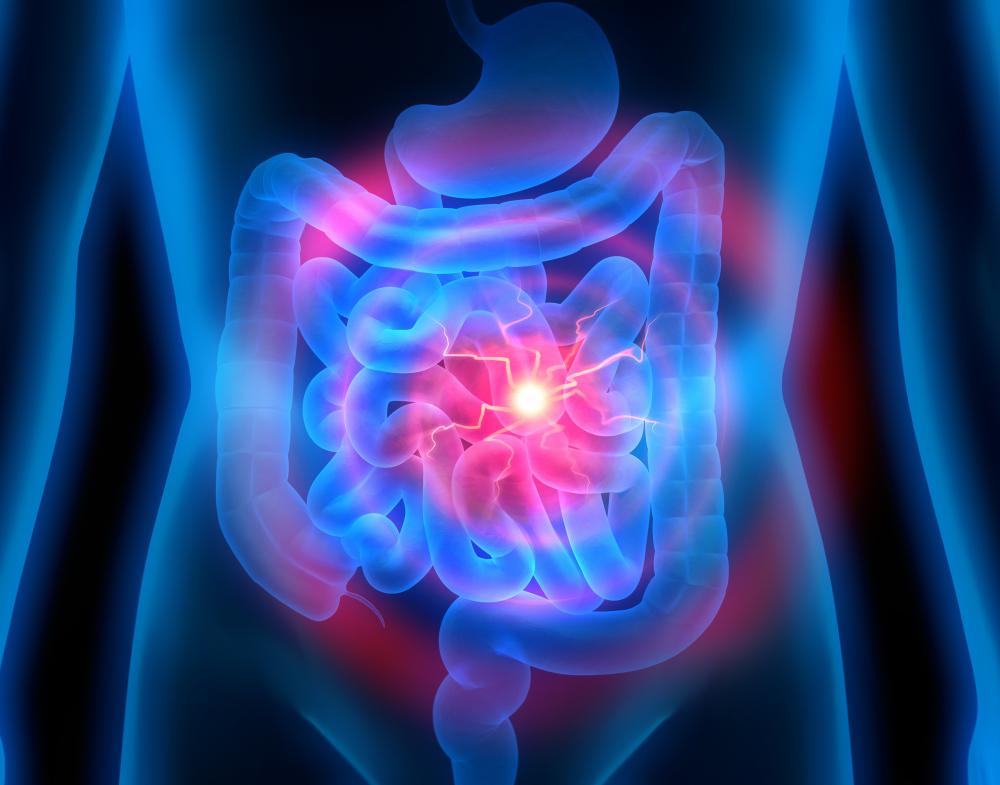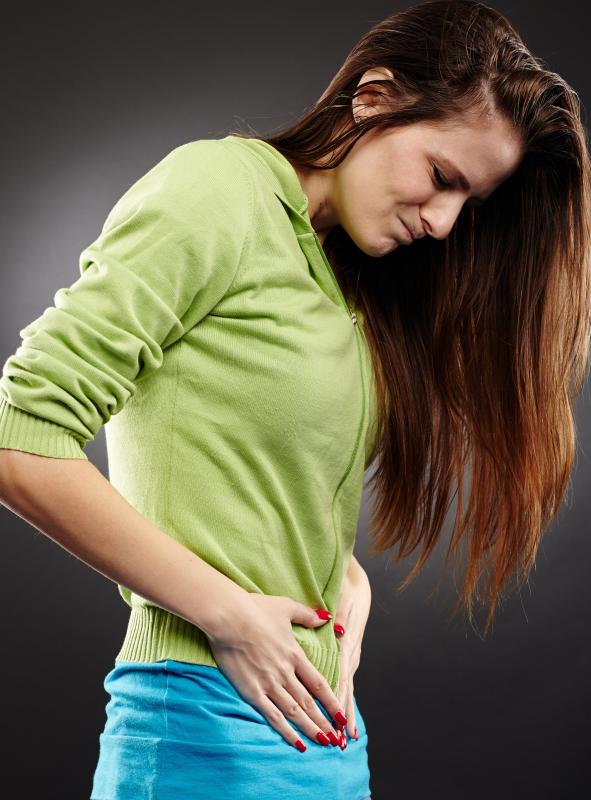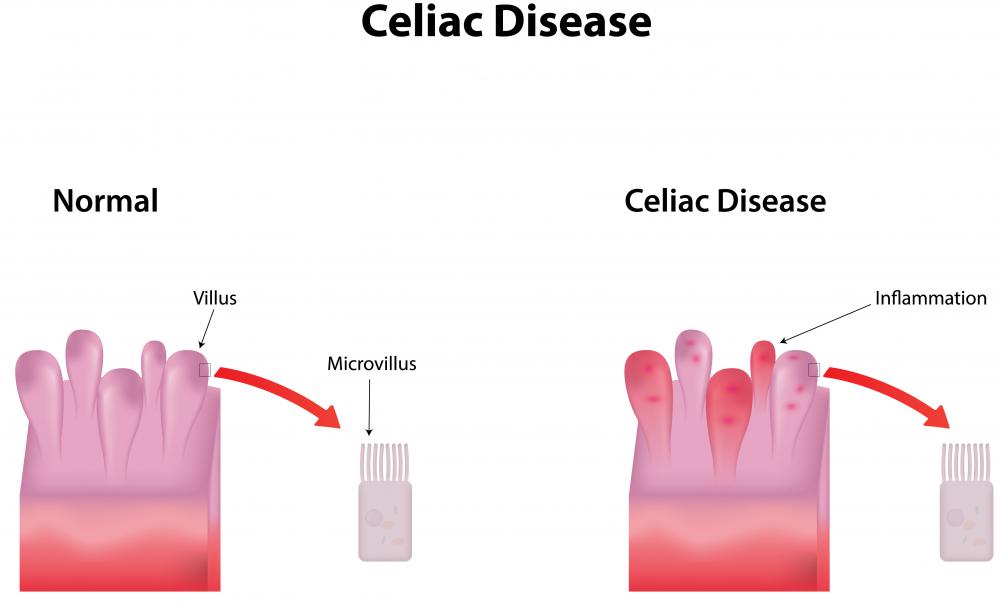At WiseGEEK, we're committed to delivering accurate, trustworthy information. Our expert-authored content is rigorously fact-checked and sourced from credible authorities. Discover how we uphold the highest standards in providing you with reliable knowledge.
What Is Severe Abdominal Bloating?
Severe abdominal bloating is a feeling of fullness and discomfort in the abdomen, or belly. The condition is sometimes accompanied by gas, indigestion, abdominal pain, and swelling. Causes of abdominal bloating range from mild to severe and run the gamut from air swallowing, adverse reactions to certain foods, to medical conditions or diseases. Over-the-counter and prescription medicines, along with diet modification, usually help to reduce abdominal bloating. Severe bloating, however, requires medical attention.
Common causes of bloating vary depending on the individual as well as the severity of the condition. In milder cases, indigestion and bloating may occur because of overeating and frequent consumption of fiber-rich foods such as broccoli, apples, and beans. Soda and other caffeinated drinks also cause bloating. Nervous habits like air swallowing, otherwise known as gulping, also lead to some abdominal bloating because of the gas buildup in the abdomen. Conditions such as constipation can also cause tightness in the abdomen.

Cases of severe abdominal bloating may occur because of medical conditions in the gastrointestinal (GI) tract, bacteria in the bowel, irritable bowel syndrome, lactose intolerance, or a sign of cancer. One example is Crohn’s disease, which causes inflammation of the GI tract, thereby causing painful intestinal bloating. Celiac disease is another condition that affects the digestive tract and causes intestinal damage and bloating. Abdominal bloating may also be caused by an overgrowth of bacteria in the small intestine. This can cause improper absorption of food, resulting in malnutrition.

Another culprit of severe abdominal bloating, irritable bowel syndrome, is a disease of the lower intestinal tract that causes constipation, diarrhea, and stomach pain. The inability of the small intestine to form enzymes results in lactose intolerance, which requires those who suffer from it to avoid dairy. Severe bloating usually appears as a symptom for those with lactose intolerance. Minor abdominal bloating is also sometimes associated with a woman’s menstrual cycle, but persistent, daily severe abdominal bloating may be a sign of ovarian cancer. Abdominal or pelvic pain and loss of appetite may warrant a visit to the doctor.

Treatment for bloating generally includes medication or changes in eating and drinking habits, while severe abdominal bloating likely requires treatment by a physician. Some over-the-counter medications work to relieve gas or constipation that triggers abdominal bloating. Eliminating or reducing caffeine intake and fiber-rich foods, and breaking the habit of gulping, can also improve symptoms of abdominal bloating. Prescription medications combined with a special diet may reduce certain GI disorders, and in turn, abdominal bloating. If severe bloating results in a more serious diagnosis such as ovarian cancer, then treatment options include surgery, chemotherapy or radiation, depending on the stage of the disease.
AS FEATURED ON:
AS FEATURED ON:

















Discuss this Article
Post your comments